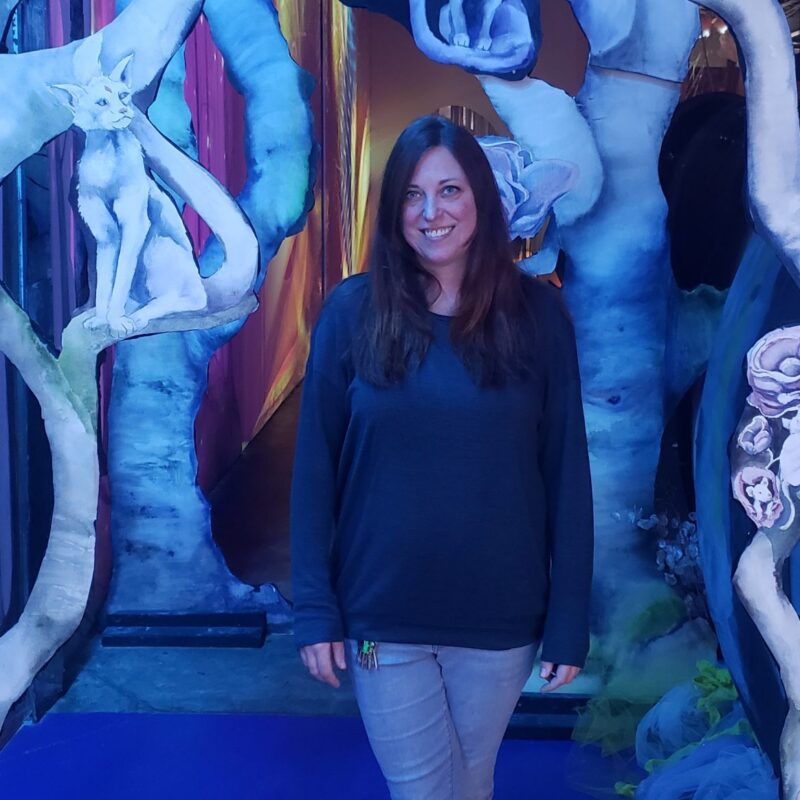In his first year in office, Ken Cuccinelli demonstrated a knack for busting the traditional bounds of an attorney general. Health care? Carbon emissions? Abortion clinics? Gay rights? Cuccinelli craftily found ways to insert himself into each issue with his own lawsuits, rulings, and interpretations.
|
Even Mann’s critics have said that Cuccinelli should call off the dogs. "No matter what has prompted your investigation, there is no doubt that it will be interpreted as a witch hunt," said one. |
Down in Richmond, some Democratic lawmakers are trying a new strategy to wall off Cuccinelli’s reach: Cut away his powers.
State senators Chap Petersen (D-Fairfax) and Donald McEachin (D-Richmond) have introduced separate legislation that would limit the Attorney General’s ability to issue civil investigative demands (CIDs), a form of civil subpoena that Cuccinelli has used to pursue former UVA climate scientist Michael Mann.
“The attorney general had abused and is continuing to abuse his current subpoena powers under Virginia law, and I felt that we had to put some type of reins on it,” says Petersen. The bill, SB 1314, would strip the attorney general of his power to issue CIDs entirely, but Petersen’s, SB 831, would restrict the attorney general only from issuing a CID to a university when the case involves “a matter of academic inquiry or research.”
“I don’t want to throw the baby out with the bathwater,” says Petersen. “To me, civil investigative demands are a useful tool to ferret out fraud. But to me, where you have a matter that is the subject of legitimate academic inquiry or research, there’s no business for the AG to investigate and say this position is fraudulent and this position is not fraudulent.”
So far, the bill has survived the Senate, where Democrats are a majority. Its House shepherd will likely be its co-patron, Charlottesville’s Democratic delegate, David Toscano.
Toscano’s not optimistic that it will pass the Republican-controlled House, “but if you think about the interference with personal liberty brought by the state, perhaps some of my conservative colleagues will think carefully about that and decide that it would be a good thing to rein this in a little bit.”
In his pursuit of Mann, Cuccinelli has invoked his powers under the Virginia Fraud Against Taxpayers Act (FATA), and in doing so, has overstepped the usual role of the attorney general in such cases.
Virginia’s fraud act, which became law in 2003, was modeled on the federal fraud act. Usually used against Medicaid fraud, FATA’s purpose is to recoup fraudulently obtained government money. To that end, it encourages whistleblowers: If a private person with knowledge of taxpayer fraud files a claim, the whistleblower can receive up to 30 percent of the damages, plus expenses. The rest goes to the government.
In order to test whether the whistleblower’s claims are valid, FATA gives Cuccinelli the power to issue civil investigative demands, which are basically subpoenas. At that stage, the plaintiff’s claims are sealed and the AG is supposed to act as a sort of referee, to keep plaintiffs from bringing frivolous suits. After investigating, the AG can do one of three things: take the case, let the plaintiff bring the case without the state’s help, or throw it out.
|
Charlottesville Delegate David Toscano is a co-sponsor of one of two bills aimed at limiting Cuccinelli’s CID power: “If you had a liberal attorney general going after someone who did research into family values, it would be inappropriate as well,” he says. |
“The CID provision exists basically so that the attorney general can decide whether to get involved in a case,” says Zachary Kitts, a Northern Virginia lawyer who specializes in fraud act claims.
In April, Cuccinelli opened an investigation into whether Michael Mann, who left UVA for Penn State in 2005, violated FATA by fraudulently receiving money from five grants totaling $485,000. Cuccinelli issued a CID to UVA seeking e-mails Mann sent to and received from 39 scientists and all of his assistants; all documents generated by the grants; and Mann’s computer algorithms, programs and source code.
Contrary to the typical fraud act claim, no whistleblower has filed suit alleging that Michael Mann committed fraud. Cuccinelli, an avowed global warming skeptic, initiated his investigation of Michael Mann based on criticism of Mann’s science and the allegations surrounding the Climate-gate controversy, which the AG laid out in court documents.
“It’s never been used for this purpose,” says Toscano. “That’s a terrible precedent, independent of your political perspective. If you had a liberal attorney general going after someone who did research into family values, it would be inappropriate as well.”
After at first negotiating with the attorney general’s office, UVA opted to fight the CID and hired outside counsel. In late August, Albemarle Circuit Court Judge Paul Peatross ruled in the University’s favor, tossing the CID on the grounds that the AG failed to properly state Mann’s alleged fraud. Peatross also ruled that, as four of the five grants involved federal rather than state funds, Cuccinelli could only investigate one of the listed grants, and only if payments were issued after January 1, 2003, when FATA went into effect. That grant was issued in 2001.
Undeterred, Cuccinelli issued a revised CID in September for the same information related to the one grant, valued at $215,000. Once again, UVA opted for a fight; the case is still in circuit court.
Cuccinelli also appealed Peatross’ ruling to the state Supreme Court, which must first decide whether it wants to take the case. In January, UVA filed its opposition brief, and the case should soon have a scheduled hearing.
Kitts, who makes money bringing fraud act lawsuits, applauds Cuccinelli’s expanded use of CIDs. He opposes the Democrats’ legislative changes, and he disagreed with Peatross’ ruling. “Michael Mann and UVA were able to successfully turn this into some kind of political issue, but to me, on the black letter of the law, this is a very noncontroversial use of the CID provision.”
Still, there is no Virginia Supreme Court case law regarding CIDs issued under the state’s fraud act according to Kitts, who hopes it takes the case: “These standards need to be qualified.”
|
Cuccinelli’s court documents show a predisposition to believe only what Michael Mann’s detractors say, rather than anything that supports the conclusions of the climate scientist. |
Regardless of the Supreme Court’s decision, Democrats in the state legislature hope their efforts will qualify Cuccinelli’s powers. Cheering them on is Brian Turner, a member of the American Association of University Professors—he spoke in favor of SB 831 at the subcommittee level.
“We think this nicely carves out a defense of academic inquiry,” says Turner, who, based on a close reading of Cuccinelli’s CID and court filings, sees the AG’s investigation as an attack on Mann because of his research.
Cuccinelli claims that he is merely investigating whether Mann committed fraud. “Our office is investigating whether a false claim was presented to the University to secure payment under government-funded grants—nothing more, nothing less,” he argued in an August press release.
But his court documents show a predisposition to believe only what Mann’s detractors say, rather than anything that supports Mann’s conclusions.
In his re-issued CID, Cuccinelli explains that he is investigating Mann because two of Mann’s early papers “have come under significant criticism.” He called them papers that “Dr. Mann knew or should have known contained false information, unsubstantiated claims and/or were otherwise misleading.”
With “or”s, “should have known”s and “misled”s, the attorney general sets a low bar for potential fraud. In his updated CID, Cuccinelli argues, “To the extent that Dr. Mann did reference or rely on his past work in these papers (or others like them) to aid in the winning of the grant when he knew of [sic] should have known of the potential of the papers (or others like them) to mislead the grantor, such actions would subject him to potential FATA liability.”
In those two papers, published in 1998 and 1999 before he came to UVA, Mann and several colleagues developed the chart widely known as the hockey stick graph. Humans started regularly recording temperatures around 1850, but Mann’s research charted average Northern Hemisphere temperatures going back to 1,000 C.E. using proxy data such as tree rings and ice cores. The graph got its name because of its shape—the plotted temperatures waving within a narrow band until suddenly shooting up in the last 150 years, like a hockey stick as drawn by Picasso.
What was most unusual about the papers was the contention that average temperatures since 1981 were unprecedentedly warm.
“The climate contrarians, one of their favorite arguments at the time was that it was hotter several hundred years ago during the so-called Medieval Warming Period,” says Aaron Huertas, spokesman for the Union of Concerned Scientists, an organization that maintains a webpage cataloguing the cherry-picked nature of Cuccinelli’s science claims in his legal briefs. “So the hockey stick really upset them, because it took away one of their talking points.”
|
Zachary Kitts, an attorney who makes money bringing fraud act lawsuits, applauds Cuccinelli’s expanded use of CIDs: “Michael Mann and UVA were able to successfully turn this into some kind of political issue, but to me, on the black letter of the law, this is a very non-controversial use of the CID provision.” |
Huertas adds, “It’s a meaningless talking point—even if it was hotter 400 years ago in some parts of the world, it doesn’t change the fact that we’re altering the climate now.”
Cuccinelli is correct that Mann’s work on the hockey stick graph came under significant criticism. Two separate papers published in 2003 took issue with aspects of the research and methodology, as Cuccinelli cites in his legal briefs. What he fails to cite, however, is the responses of Mann and other scientists generally supportive of Mann’s findings.
“I don’t think there’s any other climate research that has been as thoroughly debated, vetted, and re-vetted than that original hockey stick research,” says Huertas. “So if there’s anything wrong with it, we would have known by now from the scientists themselves. But the climate contrarians just don’t want to let go of it. They’ve built up this fable of Mike Mann.”
The fable of Mann was perpetuated during the heated parsing of Climate-gate, the tempest stemming from climate scientists’ e-mails that were hacked or leaked from a British university server. Mann was the second-most frequent author of the e-mails released, but he was exonerated after investigations by the British university and Penn State.
Even Mann’s critics have said that Cuccinelli should call off the dogs. “No matter what has prompted your investigation, there is no doubt that it will be interpreted as a witch hunt,” said Thomas Fuller, co-author of a book playing up the revelations of Climate-gate, in an open letter to Cuccinelli.
Steve McIntyre, co-author of major studies criticizing Mann’s work that were cited by Cuccinelli in his court briefs, has also called the attorney general to task. At a May conference to promote “global warming realism,” McIntyre, after detailing problems in the research on historic temperatures, disappointed the crowd with his comments on Mann.
“I strongly disagree with Cuccinelli’s recent investigation of potential financial abuse,” said McIntyre. “Regardless of what one may think of the quality of Mann’s work, he’s published diligently. In my opinion, Cuccinelli’s actions are an abuse of administrative prerogative that is on the one hand unfair to Mann and on the other hand provides an easy out for people to avoid dealing with real issues.”
Nevertheless, expect to see Cuccinelli issuing more CIDs in the future. Kitts says he’s worked on several FATA cases with Cuccinelli that will soon be unsealed.
“This is not an isolated incident,” says Kitts. “He’s been the first attorney general to step up and really prosecute. The ball is only starting to get rolling.”
|
“I don’t think there’s any other climate research that has been as thoroughly debated, vetted, and re-vetted than that original hockey stick research,” says the Union of Concerned Scientists spokesman of the climate-change graph that first appeared in Mann’s early research. |
In an appendix to his novel depicting global warming as a hoax perpetuated by conspiring environmentalists, the late Michael Crichton posed a comparison: Is global warming the new eugenics? Both, he claimed, involved well-funded researchers at prestigious universities peddling measures with “little basis in fact or science.”
Most climate scientists, on the other hand, likely see a greater likeness between the blowback to their research and the blowback to research linking tobacco to cancer. Early researchers endured attacks and vilification before time and the scientific method eventually bore out their claims.
Is global warming like eugenics or more like tobacco-related cancer? Well-practiced science seems capable of sorting this out eventually. The objections of a skeptical former mining officer like McIntyre have pushed researchers like Mann to more complete disclosure of data. But Cuccinelli’s crusade to punish Mann for his research will get us no closer to that truth.
/Cuccinelli_Zuma.jpg)
/Toscano.jpg)
/Mann_Michael.jpg)
/ZachKitts.jpg)
/hockey-stick-climate-graph.jpg)





